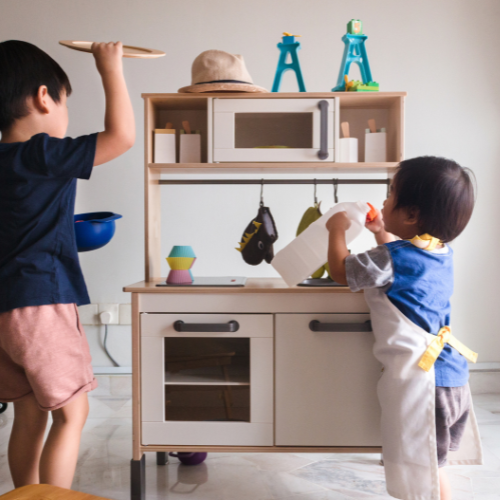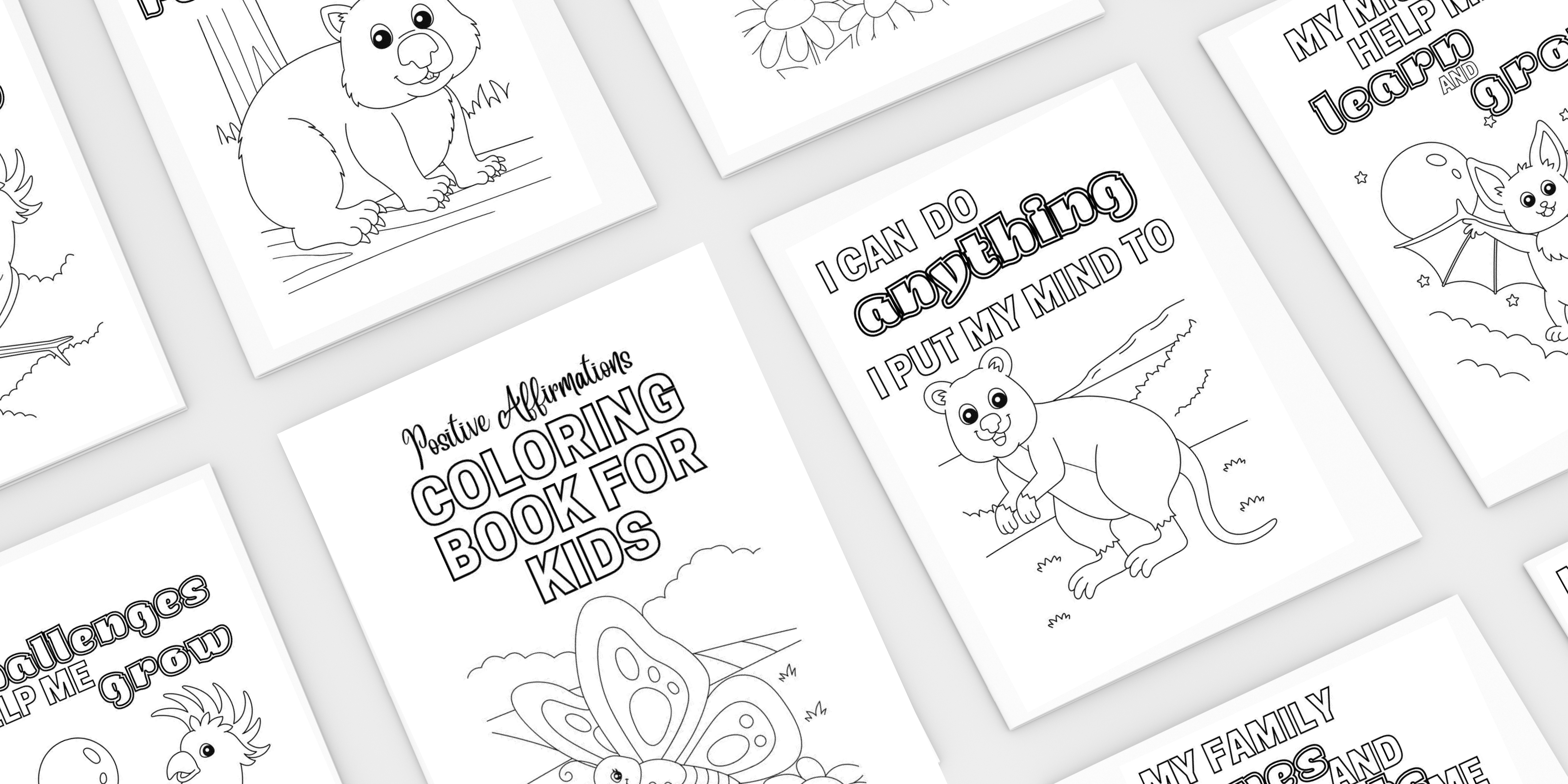As a mom of three kids, two older boys, and one toddler girl, I know firsthand the importance of playtime for my little ones, and how they were able to blossom into the creative little people they are now!
Not only is it a fun way for them to pass the time, but playtime can also be incredibly beneficial for their development. Children learn through play, that’s simply a fact!
In this article, I’ll share with you the power of play and how it can boost your toddler’s development.

Benefits of playtime for toddler development
Let’s discuss the amazing benefits playtime can bring to your toddler’s development. One of the biggest benefits is enhancing their creativity and imagination. When your little one is playing, they’re exploring their surroundings and using their imagination to come up with all sorts of scenarios and stories. It’s truly amazing to watch!
But that’s not all – playtime can also boost your toddler’s cognitive development. Through play, they learn cause-and-effect relationships, problem-solving skills, and spatial awareness. It’s like they’re little scientists, exploring and discovering the world around them.
Playtime can also improve your toddler’s language skills and socialization. Whether they’re playing with other kids or with you, they’re learning important communication skills, like how to share, take turns, and express their feelings. And the more they talk, the more their vocabulary will grow!
Last but not least, playtime can promote physical development and coordination. Whether they’re crawling, walking, or running, playtime helps your toddler develop gross motor skills and coordination. It’s like a workout disguised as fun!

Creating a safe and stimulating play environment
Now let’s talk about creating a safe and stimulating play environment for your toddler. When it comes to choosing a play area, it doesn’t have to be anything fancy. It could be a small corner of your living room, or even just a playmat on the floor. The important thing is that it’s safe and free of any potential hazards.
To ensure safety measures, make sure you’ve covered any electrical outlets and anchored furniture to the wall to prevent tipping. And keep small objects out of reach, especially if you have a little one who likes to put everything in their mouth (which, let’s face it, is most toddlers!).
When it comes to providing age-appropriate toys and activities, don’t worry about breaking the bank. Simple toys like stacking blocks or balls can provide hours of entertainment. And don’t forget to encourage independent play – this will help your little one learn how to entertain themselves and develop important skills.

Age-appropriate toys and activities
As your child gets a bit older, imaginative play and gross motor activities are great options. This is the time when your little one will start exploring the world around them and developing their imagination. Simple toys like dolls or trucks can help foster this creativity, while outdoor activities like running and jumping can help develop their gross motor skills.
And as your child approaches their second and third birthdays, pretend play and fine motor activities become important. This is when your little one will start to enjoy playing make-believe and engaging in activities that require fine motor skills, like coloring or building with blocks.
Remember, it’s important to provide a variety of toys and activities that are appropriate for your child’s age and developmental stage. And don’t be afraid to mix it up – sometimes the best toys are the ones you create yourself, like a cardboard box fort or homemade playdough.
Here is a list of some great toddler toys that can help their development!
Blocks

Blocks are a classic toy that have stood the test of time for good reason. They are great for promoting fine motor skills, spatial awareness, and problem-solving abilities. Whether your child is building a tower, a bridge, or a castle, they are engaging in imaginative play that helps them develop their creativity and critical thinking skills.
Play Kitchen Set

A play kitchen set is a great toy for toddlers because it allows them to imitate the actions of adults. Through role-playing, your child can develop social skills, improve their communication, and enhance their creativity. They can also learn about nutrition and healthy eating habits by “cooking” and “serving” meals.
Puzzles

Puzzles are another classic toy that has been a staple of childhood for generations, and they make nice chunky ones for toddlers. They help develop problem-solving skills, hand-eye coordination, and spatial awareness. As your child works to fit the pieces together, they are also practicing their cognitive skills, such as memory and concentration. Basically puzzles, puzzles and more puzzles are great for your home.
Play Dough

Play dough is a fun and versatile toy that can be used in many different ways. It’s great for developing fine motor skills, as your child squeezes and molds the dough. They can also use it to create different shapes and objects, which helps develop their creativity and imagination.
Shape Sorters

Shape sorters are a simple toy that can provide a lot of benefits for your child’s development. They help improve hand-eye coordination and problem-solving skills, as your child figures out which shape goes where. They also help develop cognitive skills, such as sorting and categorizing.
Musical Instruments

Music is a powerful tool for child development, and providing your toddler with musical instruments is a great way to introduce them to the world of music. Playing instruments helps develop fine motor skills, hand-eye coordination, and spatial awareness. It can also boost cognitive development, as your child learns about rhythm, timing, and melody.
Art Supplies

Art supplies such as crayons, markers, and paint are great for promoting creativity and imagination. They allow your child to express themselves through art and experiment with different colors and textures. Art supplies also help develop fine motor skills, hand-eye coordination, and cognitive skills such as planning and problem-solving.
Push and Pull Toys

Push and pull toys are great for promoting physical development and gross motor skills. As your child pushes or pulls the toy, they are developing their balance and coordination. These toys can also help with cognitive development, as your child learns about cause and effect.
Stuffed Animals

Stuffed animals are a classic toy that provide comfort and companionship for your child. They can also help develop social skills and empathy, as your child learns to care for and nurture their stuffed animals. Additionally, stuffed animals can help develop language skills, as your child talks to their toys and creates imaginary scenarios.
How to incorporate playtime into everyday activities
Did you know that playtime doesn’t have to be a separate activity that takes up a lot of your time and energy?
In fact…there are many ways to incorporate playtime into your everyday routines and activities.
For instance, you can turn everyday chores like washing dishes or folding laundry into a fun game that you and your child can enjoy together. Or, you can encourage your little one to help you with gardening or cooking, which not only provides a great learning opportunity but also allows you to get things done while spending quality time with your child.
By making playtime a part of your daily routine, you’re helping your child learn and grow in a way that’s easy and enjoyable for both of you.

Tips for parents to encourage playtime
Before we wrap up, let’s talk about some tips for parents to encourage playtime with their little ones.
First and foremost, make time for playtime. It can be easy to get caught up in the daily routine of feeding, bathing, and napping, but it’s important to carve out dedicated playtime as well. Even just 10-15 minutes a few times a day can make a big difference.
And don’t be afraid to join in on the fun! Playing with your child not only helps them learn and develop, but it also strengthens your bond with them. Plus, let’s be honest, who doesn’t love building a tower of blocks or playing make-believe every once in a while?
Offering praise and encouragement can also go a long way. Let your little one know when they’re doing a great job or when you’re proud of them. Positive reinforcement can help build their confidence and encourage them to keep exploring and learning through play.
Finally, it’s important to limit screen time. While technology can be a valuable learning tool, it’s also important for children to engage in hands-on, physical play. So, try to limit your child’s screen time each day and encourage them to explore the world around them through play.
By following these tips and embracing playtime as a valuable learning opportunity(for both you and your toddler), you can help your little one thrive and grow into happy, healthy adult.
Common misconceptions about playtime
There are many misconceptions about playtime, including the idea that it’s just a way for kids to pass the time.
However, playtime is an essential part of your child’s development and helps them learn and grow in various ways.
Another misconception is that expensive toys and gadgets are necessary for effective playtime, but the truth is that simple toys and activities can be just as effective. You can literally use what you have at home! Pots and pans, plastic cups, buckets! All great stuff.
Toddler Playtime and You
Playtime is an important part of your toddler’s development. It can enhance their creativity, cognitive and physical development, language and socialization skills, and much more. By creating a safe and stimulating play environment, providing age-appropriate toys and activities, and following our tips for encouraging playtime, you can help your little one learn and grow while having fun.
As parents, it’s easy to get caught up in the daily hustle and bustle of life, but it’s important to prioritize playtime with your child. Even just a few minutes of dedicated playtime a day can make a big difference in your little one’s development and well-being. So, make the time, join in on the fun, and watch your child flourish through play.
We hope this article has inspired you to embrace playtime as a valuable learning opportunity and to implement it into your daily routine with your toddler. Remember, the best thing you can give your child is your time and attention, and there’s no better way to do that than through play. Happy playing!







This post on how playtime can boost a toddler’s development was a great reminder of the importance of play in a child’s life. The breakdown of the different types of play and how they impact development was particularly helpful. As a parent, I will definitely be incorporating these insights into my child’s playtime routine. Thank you for sharing this valuable information!
I couldn’t agree more with the points made in this post about how playtime can boost a toddler’s development. As a parent, I’ve noticed firsthand how important playtime is for my child’s social, emotional, and cognitive growth.